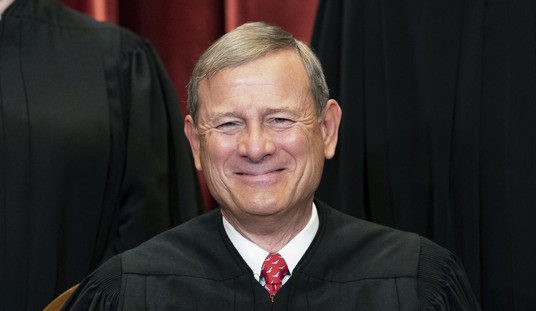Good to know, I suppose, for those who spent the weekend parsing the words “ridiculous” and “insult” into maaaaayyyybeeeee. This morning, Donald Trump denied working as a Russian agent, calling the question a “disgrace”:
NEW: "I never worked for Russia," Pres. Trump says on White House lawn. "It's a whole big fat hoax." https://t.co/NkJuIoh4fP pic.twitter.com/1YZJb5oAPY
— ABC News (@ABC) January 14, 2019
That answers Aaron Blake’s question almost at the same time he asked it … as if it needed answering. Earlier this morning, the Washington Post columnist wondered why Trump hadn’t issued an explicit and detailed denial:
It’s been about 60 hours since it was first reported that the Federal Bureau of Investigation launched an inquiry into whether President Trump was working for Russia. And for all the bluster and tough words from Trump, we’re still missing something: a real denial.
The president took to the friendly airwaves of Jeanine Pirro’s Fox News show Saturday night to call the question of whether he is or was working for Russia “insulting” — without actually addressing the question — while Secretary of State Mike Pompeo decided to knock down a straw man when asked about all this. …
The first thing is that calling something an “insult” — even “the most insulting article” — isn’t technically denying it. Yes, you tend to be more insulted by ridiculous accusations, but Trump doesn’t technically say that what the FBI was investigating was untrue. It’s also notable that he repeated at the end that the article was an “insult” — which suggests this not-quite-denial was a predetermined talking point.
Er … for what purpose? Blake’s usually a smart writer, but he’s too clever by half in this argument. One would have to assume that Trump has some reason to refrain from denying the allegation, as opposed to just flat-out ridiculing it. What possible reason could there be? Judge Pirro didn’t have Trump under oath, so he could feel free to deny it even if the denial was false. If proven so, would it be worse to be a Russian agent, or to have lied while denying it? It’s a silly argument.
There is a much simpler answer to Blake’s question. Calling an allegation an “insult” and “ridiculous” is fully responsive as a denial to most people, especially outside the media/political bubble. That’s especially true given that it wasn’t an allegation in the first place — merely a hypothesis the FBI considered at the start of their investigation, as CNN’s report this morning made clear:
James Baker, then-FBI general counsel, said the FBI officials were contemplating with regard to Russia whether Trump was “acting at the behest of and somehow following directions, somehow executing their will.”
“That was one extreme. The other extreme is that the President is completely innocent, and we discussed that too,” Baker told House investigators last year. “There’s a range of things this could possibly be. We need to investigate, because we don’t know whether, you know, the worst-case scenario is possibly true or the President is totally innocent and we need to get this thing over with — and so he can move forward with his agenda.”
In other words, why would anyone feel the need to respond to something that hasn’t even been alleged? If someone speculated in a House committee hearing or an FBI office that Trump was an alien from the planet Mongo, wouldn’t calling it “ridiculous” suffice?
We sometimes consider the Red Scare of the 1940s and 1950s an aberration, but the events of the past two years demonstrates that we haven’t learned one damned thing from it. The Soviet Union was a malevolent force and so is Russia under Putin, so no one should dismiss the potential for damage. Rather than assess the threat rationally, however, we have indulged in a social-political panic in which people must answer for every wild hypothesis or be considered guilty and traitorous. Our national media is just as guilty of this, if not perhaps the most responsible for its malicious revival.








Join the conversation as a VIP Member